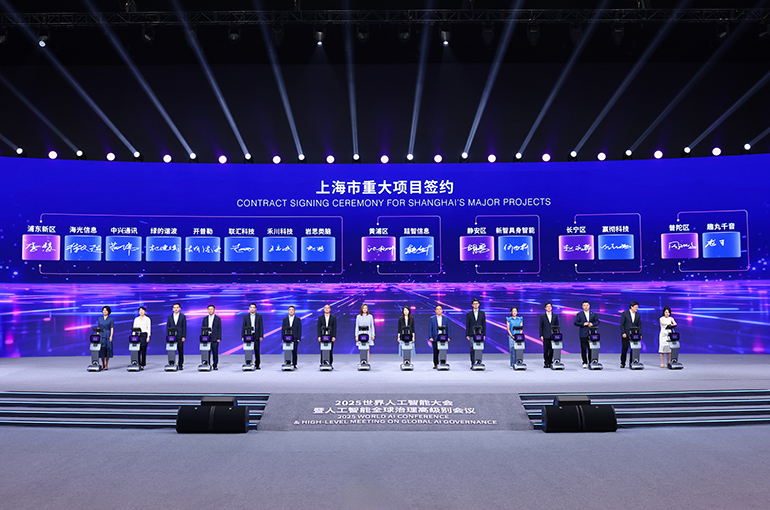Select Language:
The three-day 2025 World Artificial Intelligence Conference concluded with agreements signed for 32 projects totaling CNY45 billion (approximately USD6.3 billion), and a target procurement volume of CNY16.2 billion. This year’s event drew over 3.05 million in-person attendees, with more than 800 exhibitors presenting over 3,000 cutting-edge technologies, according to the organizers.
Throughout the conference, numerous industry matchmaking sessions and scenario-specific releases took place, attracting procurement delegations from more than a dozen countries. The Future Tech Innovation Incubation Exhibition Area facilitated around 2,000 meaningful connections between startups and investors, leading to planned transactions valued at CNY268 million (about USD37.3 million).
Highlight projects included iterative upgrades of intelligent computing platforms, expanded cross-regional collaboration, and various practical applications. For instance, StepFun unveiled Step 3, its next-generation foundational large language model that boasts a decoding efficiency three times higher than comparable products. This model will be open-source starting July 31.
Additionally, StepFun, alongside chip manufacturers like Huawei Ascend and MetaX, co-founded the Mould Core Ecosystem Innovation Alliance to foster collaborative optimization of models and hardware systems.
On the application front, Shanghai Electric revealed its humanoid robot, while Qinglang Intelligent Technology introduced XMAN-F1, a bipedal service robot making its global debut—showcasing AI’s growing role in industrial and service environments. Meanwhile, IM Motors, Pony.ai, Chery Auto, and Baidu Apollo operated Level-4 autonomous shuttle services in Pudong New Area.
Shanghai also announced 12 new AI initiatives aimed at supporting the industry through funding, talent recruitment, and other resources. The city is also expected to introduce an implementation plan focused on embodied intelligence.
Furthermore, the conference saw the launch of the Global AI Innovation Governance Center, designed to act as a platform for international dialogue on AI regulation and promote rule harmonization. The China Meteorological Administration contributed by donating the MAZU—an urban multi-disaster early warning AI agent—to Djibouti and Mongolia, showcasing China’s commitment to global AI responsibility. The idea of establishing a World AI Cooperation Organization was also proposed, emphasizing key areas such as innovation and development to foster global AI governance collaboration.



